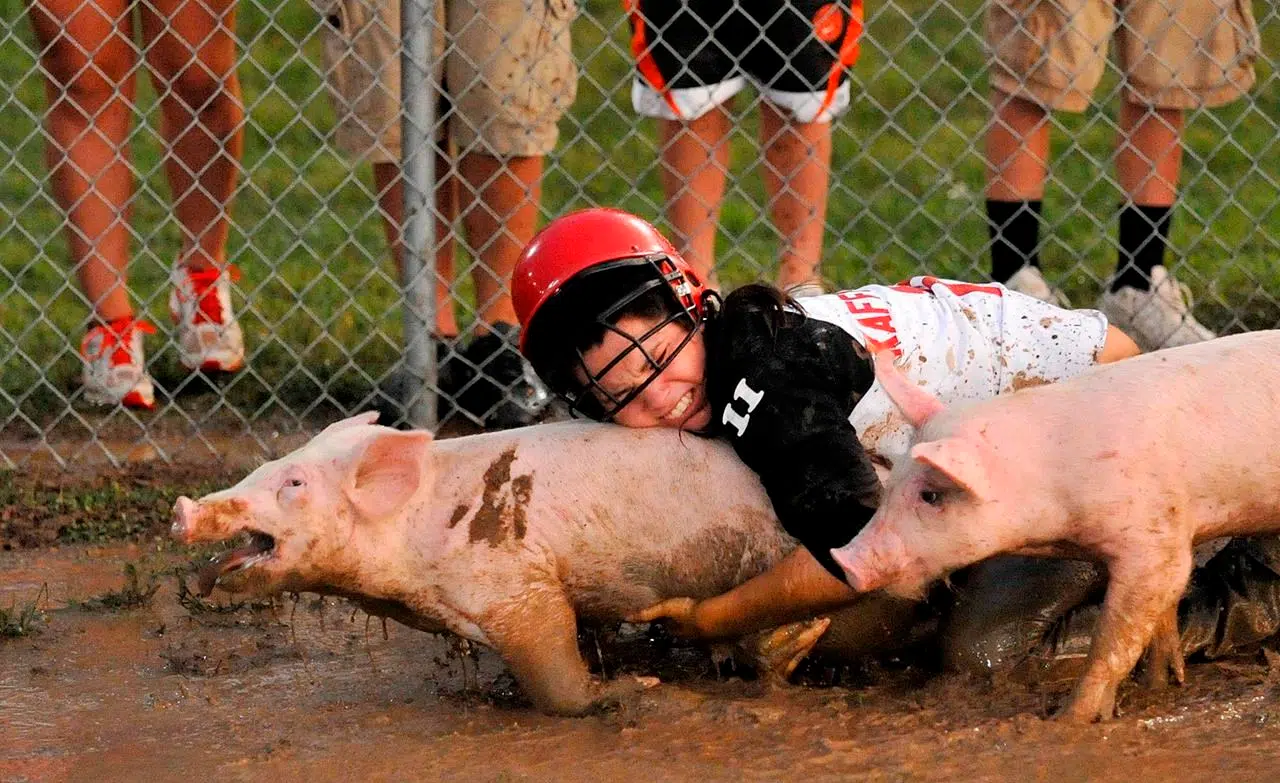
Woman attempts to bring end to pig-chasing events at county fairs on Island
DUNDAS, P.E.I. — The annual “pig scramble” at a rural fair in Prince Edward Island amounts to animal cruelty, says a New Brunswick woman who is behind a campaign to stop the event.
The contest features small children chasing four squealing swine as they scramble around an enclosed pen.
“I know a lot of people think it’s just a farm animal, but it’s not just a farm animal – it’s still an animal,” Melodie Robb said in an interview Tuesday from Moncton.
“It’s not just for fun when the pigs get hurt. They use smaller pigs, and sometimes their little legs get broken and their shoulders get broken.”


